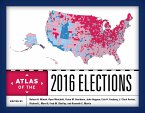" Why do some working-class Democrats admire Donald trump-and why are they likely to vote for him again in 2020? After living in a number of communities that had generally voted Democratic in past presidential elections, Stephanie Muravchik and Jon Shields found that many still like the Democratic Party, but it's not the party that many readersof this book will recognize. In these communities, some of the most beloved and longest-serving Democratic leaders are themselves Trumpian-grandiose, combative, thin-skinned, nepotistic. Indifferent to ideology, they promise to take care of"their people" by cutting deals-and corners if needed. Stressing loyalty, they often turn to family to fill critical political roles. Trump strikes a familiar figure to these communities, resembling an old-style Democratic boss. And although Trump's Democrats have often been pictured as racists, Muravchik and Shields find that their primary political allegiances are to their town or county-not racial identity. They will spend an extra dollar to patronize local businesses, and they think local jobs should go to their neighbors, not "foreigners" from neighboring counties-who are just as likely to be white and native-born. When these citizens turn their attention to the nation and their place in it, their thinking is informed by their sense of belonging in their town. Thus, "America first" nationalism is largely localism writ large. If Democrats want to rehabilitate the party of the New Deal, a broad-based working-class party made up of citizens of all races, there may still be time to reverse its political course. The first step is to gain a better understanding of Trump's Democrats. "
Bitte wählen Sie Ihr Anliegen aus.
Rechnungen
Retourenschein anfordern
Bestellstatus
Storno








